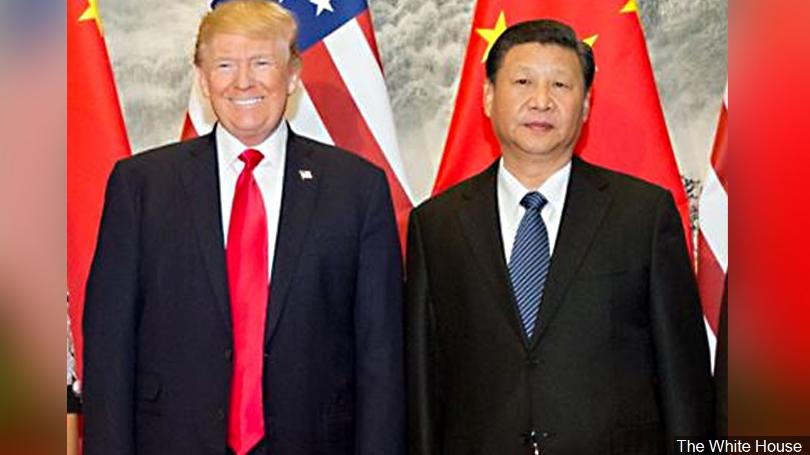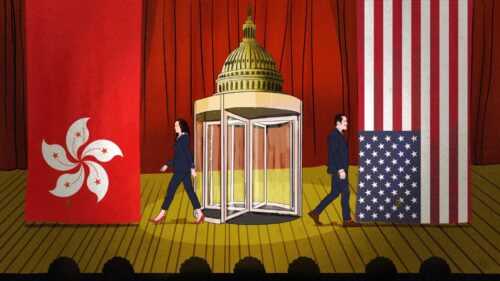Is China the enemy?

Last week, China scholars and former diplomats M. Taylor Fravel, J. Stapleton Roy, Michael D. Swaine, Susan A. Thornton, and Ezra Vogel published an open letter to Donald Trump and members of Congress titled “China is not an enemy.” The letter was also signed by dozens of other prominent businesspeople, scholars, and think tank/government types, some of whom are by no means panda huggers. This is how it begins:
We are deeply concerned about the growing deterioration in U.S. relations with China, which we believe does not serve American or global interests. Although we are very troubled by Beijing’s recent behavior, which requires a strong response, we also believe that many U.S. actions are contributing directly to the downward spiral in relations.
Of course there was backlash. These days, you can’t suggest any kind of softening to China in D.C. or on Twitter without being accused of being on the Chinese Communist Party payroll.
Some of the criticism is more thoughtful: This Twitter thread by Tianjin resident American Matthew Stinson is fair.
https://twitter.com/stinson/status/1146506927540588544
Although many of the signatories of the letter may disagree with some of his arguments, his thinking is highly representative of a significant proportion of the younger people in the China-watching community. Here’s an argument on a similar theme, written before the open letter was published, from millennial American essayist Tanner Greer. Excerpt:
Engagement is dead. Yet like dead growth lumped to living branch, the men and women who crafted the disaster linger with us. In twitter whispers and podcast chatterings their murmurs grow. Engagement did not fail, we hear. It never was about remaking China in the first place. We never thought the Chinese would come to share our systems, values, or priorities. Engagement was about something else entirely.
…
They [the CCP] understood what we were doing perfectly well. They knew from the beginning that we hoped closer economic and social relations with the Chinese people would lead to their gradual emancipation from the claws of a tyrannous party-state. They knew! That is what Silent Contest, In Memory of the Collapse of Communist Party and the Soviet Union, Document #9, Xi’s obsession with ideological competition, Wang Huning’s entire career, and two decades of Party-sponsored research and national security law was all about! To the Chinese state, the “engagement” and “responsible stakeholder” strategies were an existential threat to their regime, and they were not shy about telling us this. Our problem: we did not listen.
More recently, John Pomfret has weighed in, with an editorial in the Washington Post titled “Why the United States doesn’t need to return to a gentler China policy,” in which he blames “a profoundly paternalistic strain in the U.S. view of China” for leading American policymakers astray:
To blame the president for the current crisis with Beijing is redolent of an old view of China that has been around since the days of Christian missionaries. Treat China as an enemy, the tired chestnut goes, and China will become one. Treat China as a friend, and China will become a friend. It’s as if China has no role to play in this drama whatsoever. Can’t we bury that notion once and for all?
The CCP is far more responsible for what happens in China — and for the current crisis with the United States — than any American…
The Neanderthals of Washington, D.C., are also fighting back. There’s another open letter, titled “Stay the Course: Confront China’s Totalitarian Expansionism,” that is right now gathering signatures that advises Trump to “stay the course.” You can understand the type of thinking behind this letter from this excerpt:
An inspiration for this letter was the palpable surge of pride in America evident in your celebration of the 4th of July at the memorial to a president, Abraham Lincoln, who saved our country from a previous, existential peril.






